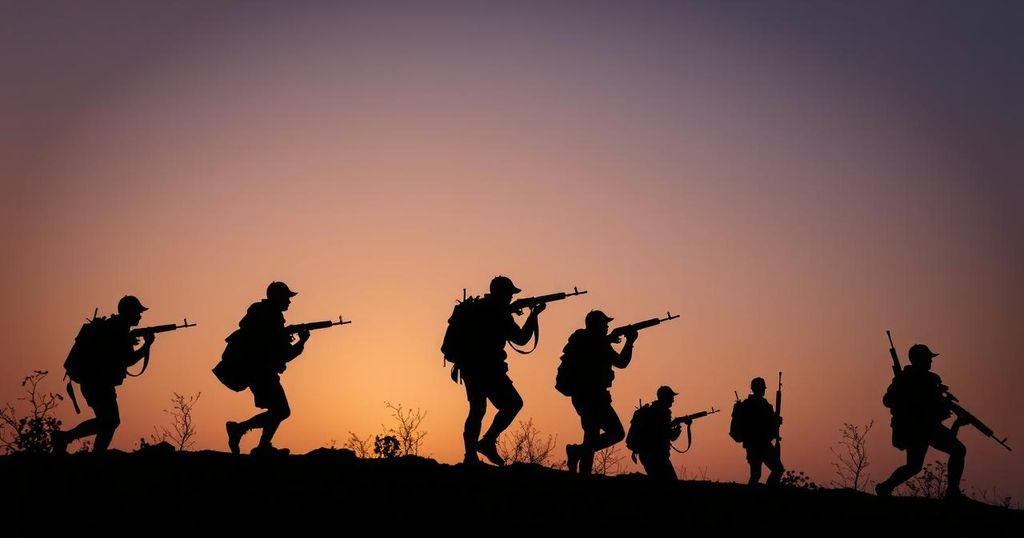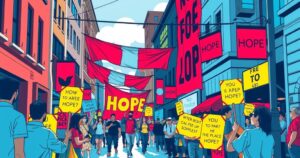Repatriation of Freedom Fighters’ Remains to South Africa

On Wednesday, the remains of 42 South African freedom fighters who died in exile were returned from Zimbabwe and Zambia. This repatriation, part of a government initiative, aims to provide closure to families and honor the contributions of these individuals to the anti-apartheid movement. Deputy President Paul Mashatile emphasized the importance of this initiative for educating future generations. President Cyril Ramaphosa will host a ceremonial event for the remains on Friday before they are handed over to families for reburial.
The remains of 42 freedom fighters from South Africa, who perished in exile in Zimbabwe and Zambia during the anti-apartheid struggle, were solemnly repatriated to their homeland on Wednesday. The ceremony took place at Waterkloof Air Force Base in Pretoria, where government officials and family members awaited their return. This repatriation is part of a broader governmental initiative aimed at providing closure to families whose loved ones died abroad while engaged in the liberation movements under the African National Congress (ANC) and the Pan Africanist Congress (PAC). Historically, prior to the end of apartheid in 1994, numerous activists fled South Africa to receive military training overseas and to evade arrest by the oppressive regime. Zambia and Zimbabwe became key locations for these exiles as they hosted the operational bases of various anti-apartheid factions, including the ANC, which established its headquarters in Lusaka after being banned in South Africa. Among the notable remains returned were those of renowned figures such as Duma Nokwe, Florence Mophosho, and Basil February. In a message conveyed during a Heritage Day event, Deputy President Paul Mashatile remarked that this repatriation seeks to educate future generations regarding the contributions made by these individuals in the fight against apartheid. He stated, “As a national memory project, this initiative aims to commemorate, celebrate, educate, promote, preserve, conserve, and provide a durable testament to South Africa’s road to freedom.” President Cyril Ramaphosa is scheduled to preside over a ceremonial event to honor the returned remains on Friday, following which they will be handed over to their families for reburial across South Africa. Additionally, the government is actively working to repatriate remains from other nations such as Lesotho, Ethiopia, Tanzania, and Angola, as part of an ongoing commitment to reconnect families with their lost kin. Deputy Defense Minister Bantu Holomisa expressed hope that this process would include more individuals who died under challenging circumstances, stating, “I hope this process will culminate in getting more people in other countries who died under difficult conditions. We welcome them back to connect with their families.”
The repatriation of remains of South African freedom fighters is rooted in the historical context of apartheid—a system of institutionalized racial segregation and discrimination in South Africa that lasted from 1948 until the early 1990s. During this dark period, many anti-apartheid activists were forced into exile to escape political persecution. The African National Congress (ANC) and the Pan Africanist Congress (PAC) formed operational bases in neighboring countries, notably Zimbabwe and Zambia, where they trained for armed resistance against the apartheid government. As many activists died in these countries, there was a longstanding initiative to bring their remains back home as a means of honoring their sacrifices and providing closure to their families. This recent repatriation aligns with broader government efforts to recognize and commemorate the contributions of these freedom fighters in South Africa’s struggle for democracy and equality.
The recent return of the remains of 42 South African freedom fighters marks a significant moment of remembrance and reconciliation, as families are finally able to honor their loved ones who fought valiantly against apartheid. This initiative not only serves to provide closure but also educates future generations on the sacrifices made in the pursuit of freedom. With ongoing efforts to repatriate more remains from various countries, this process underscores South Africa’s commitment to honoring its past and fostering a collective national memory.
Original Source: www.independent.co.uk







